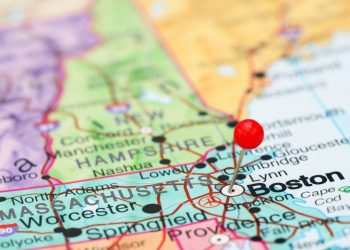 RISMEDIA, April 21, 2009-(MCT)-If only cash sprouted as easily as backyard weeds, we’d all be cheering. But greening up your wallet is still doable. In homage to Earth Day (April 22) here are some Earth-friendly money habits you might want to adopt.
RISMEDIA, April 21, 2009-(MCT)-If only cash sprouted as easily as backyard weeds, we’d all be cheering. But greening up your wallet is still doable. In homage to Earth Day (April 22) here are some Earth-friendly money habits you might want to adopt.
Green donations
It’s grown from a Bay Area brainstorm into a global campaign to get businesses into the spirit of environmentalism. Buy a shirt, a chocolate bar, a beer – even fencing supplies or legal services – and 1% of the company’s gross sales are pledged to environmental nonprofit groups.
Since launching from a California Patagonia store in 2002, the One Percent for the Planet – or 1% FTP – program has now spread to some 1,138 businesses in 38 countries, said Terry Kellogg, the Vermont-based CEO of 1% FTP. “It’s a very tangible way to make a very discrete impact. If I make this purchase, I know that X amount of dollars will go to a cause I care about,” said Kellogg.
The participating companies range from big retailers like Sony to independent jewelry sellers. The recipients run from high-profile nonprofits like the Sierra Club to tiny grassroots groups. Based on company audits, Kellogg said more than $42 million has been contributed to environmental causes in the past six years.
Green funds
One way to feel environmentally good about your investing dollars is with so-called “green mutual funds.”
The GreenMoney Journal recently released its new Top 10 list of mutual funds that invest in companies devoted to alternative energy, clean water, organic products and those that avoid alcohol, tobacco, gambling or weapons. The annual list is a mix of new funds and those that have changed or enhanced their investment mix to be more environmentally conscious, said Cliff Feigenbaum, founder and president of the Green Money Journal, based in Santa Fe, N.M. “The funds represent different ways people can align their money with their values,” said Feigenbaum, who has published the journal since 1992. “Our goal is to make money and make a difference.”
Green banking
All kinds of companies, from banks to your local utility, are urging customers to switch to electronic billing, statements and payments. The notion: Pay online, save a tree. Or two. It also saves companies the payroll and overhead costs spent processing paper accounts by mail.
PayItGreen is a coalition of financial services companies that promotes electronic billing. According to the coalition, if the average U.S. household switched to electronic payments, it would annually:
-Save 6.6 pounds of paper.
-Save 0.079 trees.
-Eliminate 4.5 gallons of gasoline (consumed by mailing and delivering all those paper payments).
-Prevent 63 gallons of wastewater released.
-Eliminate 171 pounds of greenhouse gas emissions (the equivalent of 169 miles of driving or conserving 24 square feet of forestland).
Green plastic
If your wallet is weighed down by plastic gift cards, credit cards, gasoline cards and such, maybe it’s time for some pruning. As we all know, clipping up or paying down costly credit cards can be a huge lift to your bank account.
But don’t just snip and toss that plastic.
If it’s a used-up gift card, ask to have it reloaded with cash. If it’s a no-longer-needed credit card, hotel key or other plastic, toss it in your recycling bin, but check to be sure it’s actually recyclable. Looking for a greener solution? Pop it in the mail to Earthworks System, a company in Solon, Ohio, that’s on a crusade to rid the world’s landfills of those tiny rectangles of credit.
Founder and president Rodd Gilbert, a plastics broker who started Earthworks as a business sideline, says 75 million pounds of PVC cards go into landfills each year. “That’s what we’re trying to prevent,” he says. “My goal is to keep it out of the earth.”
His company gathers up millions of pounds a year of scrap PVC card plastic and reprocesses it into “100 percent recycled sheets” that are sold back to credit card manufacturers. Most of his material comes from “skeletons, overruns and obsolete” stock left over from plastic card manufacturers. Other contributors are retailers like Rite-Aid, GAP, Applebee’s and Whole Foods, as well as movie theaters, hotel chains, even universities that ship him leftover student IDs.
© 2009, The Sacramento Bee (Sacramento, Calif.).
Distributed by McClatchy-Tribune Information Services.










